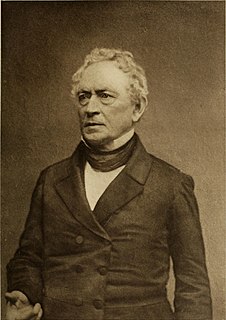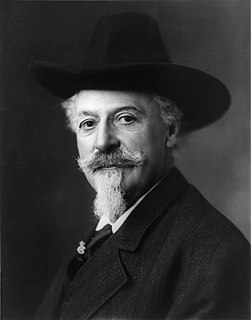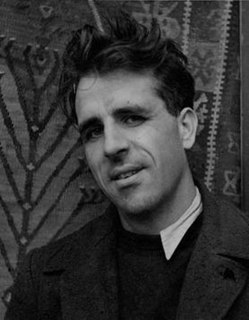A Quote by Edward Everett
General Reynolds immediately found himself engaged with a force which greatly outnumbered his own, and had scarcely made his dispositions for the action when he fell, mortally wounded, at the head of his advance.
Related Quotes
When Christ was about to leave the world, He made His will. His soul He committed to His father; His body He bequeathed to Joseph to be decently interred; His clothes fell to the soldiers; His mother He left to the care of John; but what should He leave to His poor disciples that had left all for Him? Silver and gold He had none; but He left them that which was infinitely better, His peace.
Consider the generosity of our Savior: what He acquired by dying becomes ours by eating. As often as we receive this Sacrament with proper dispositions, we make our own the fruits of all the labors, injuries and sufferings of His life, especially those borne at the time of His passion and death. Just as the power and the sensations of the head reach all the members of the body, in the same way, because Christ is "the head of the Church which is His Body" (Eph. 1:23), the treasures of His grace are made abundantly available to all who through charity are one with Him as living members.
The fact, however, to which I want to call attention is that the master of Judo never relies upon his own strength. He scarcely uses his own strength in the greatest emergency. Then what does he use? Simply the strength of his antagonist. The force of the enemy is the only means by which that enemy is overcome.
When he at least reached the door the handle had cease to vibrate. Lowering himself suddenly to his knees he placed his head and the vagaries of his left eye (which was for ever trying to dash up and down the vertical surface of the door), he was able by dint of concentration to observe, within three inches of his keyholed eye, an eye which was not his, being not only of a different colour to his own iron marble, but being, which is more convincing, on the other side of the door.
In the absence of government each man learns to think, to act for himself, without counting on the support of an outside force which, however vigilant one supposes it to be, can never answer all social needs. Man, thus accustomed to seek his well-being only through his own efforts, raises himself in his own opinion as he does in the opinion of others; his soul becomes larger and stronger at the same time.
He appeared to enjoy beyond everything the sound of his own voice. I couldn't wonder at that, for it was mellow and full and gave great importance to every word he uttered. He listened to himself with obvious satisfaction and sometimes gently beat time to his own music with his head or rounded a sentence with his hand.











































